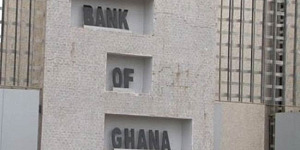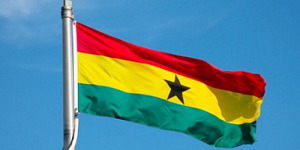Ghana's central bank left its policy rate unchanged at 26.0 percent, the second highest policy rate worldwide, saying "the tight policy stance is needed to deepen the gains made in the foreign exchange market and strengthen the disinflation process over the forecast horizon."
The Bank of Ghana, which has maintained its rate this year after raising it by 500 basis points in 2015 to curb inflation from a plunge in the cedi's exchange rate, added the risks to inflation and growth were seen as balanced and the tight policy stance and stability in the foreign exchange market, alongside easing inflation expectations and improving fundamentals, should provide additional momentum to the disinflation process.
A deceleration in the inflation rate in April was in line with the central bank's earlier forecast that inflation would peak in the first quarter of this year and then decline.
The latest forecasts reinforce the view that inflation will gradually decline from the second quarter towards the medium-term target band of 8.0 percent, plus/minus 2 percentage points.
In April Ghana's headline inflation rate eased to 18.7 percent from 19.2 percent in March due to a slowdown in non-food inflation and a stable exchange rate. The latest surveys from April show declining trends in inflation expectations based on positive perceptions of exchange rate movements and improved energy supply, the bank said.
Since October last year the cedi's exchange rate has been stable, with the central bank attributing this to past rate hikes, improved liquidity on foreign exchange markets and investor interest in debt.
Today the cedi was quoted at 3.83 to the U.S. dollar, steady from 3.82 at the start of this year but down 16.7 percent since the start of 2015.
The fiscal operations of Ghana's government from last year through the first quarter of this year showed a faster pace of consolidation than projected, the central bank said.
The deficit of Ghana's government was estimated to have declined to 6.7 percent of Gross Domestic Product in 2015, lower than the targeted 7.3 percent and down from 10.4 percent of 2014.
Fo the first quarter of this year, the deficit on a cash basis was estimated at 0.4 percent of GDP compared with a 1.5 percent target, the bank added.





















































